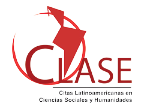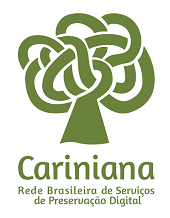The study of the new-christians in the colonial brazil under the view of the israeli schools: case study
DOI:
https://doi.org/10.5433/2238-3018.2013v19n2p241Keywords:
School, History and Teaching, Textbooks, São Paulo.Abstract
In this study, it is our aim to call attention to the way the teaching of History is done in a school of Jewish origin, which herein shall be called CHEDER, and it is located in the city of Sao Paulo. Our emphasis will be placed on two materials: the textbooks used in the non-Jewish schools. The school (beginning of the XX Century) presented itself as a way to maintain the cultural, the memory and the Jewish identity they wanted to preserve. In our first studies, it was possible to see that, concerning the disciplines related to the teaching of the Judaism, those occurred, with the exception of the teaching of the Hebrew language, apart from the ones in the official curriculum, thus not being limited to the Jewish curriculum only, and not necessarily involving the obligation of the religious teachings; it is also noted that, rather to the contrary of a submission and victimization, the writing about the New-Christians in the texts presented herein, show consistently how much these agents were integrated in the societies they had been inserted, developing trading nets and social relationships with the local population, mingling with them, occcupying positions of trust and creating mechanisms of survival.
Downloads
References
CYTRYNOWICZ, R. Cotidiano, imigração e preconceito: a comunidade judaica nos anos 1930 e 1940. In: GRINBERG, K. (Org.). Os judeus no Brasil: inquisição, imigração e identidade. Rio de Janeiro: Civilização Brasileira, 2005. p. 285-314.
CYTRYNOWICZ, R. ; ZUQUIM, J. Renascença 75 anos/1922-1997. São Paulo: Ed. Renascença, 1997.
FALBEL, N. Judeus no Brasil: estudos e notas. São Paulo. Humanitas: USP, 2008.
CYTRYNOWICZ, R. Literatura ídiche no Brasil. São Paulo: Humanitas, 2009. GRINBERG, K. A Construção da Identidade Étnica na Escola Judaica: um estudo de caso. In: LEWIN, H. (Org.). Judaísmo: memória e Identidade. Rio de Janeiro: EDUERJ. 1997.
MANDELELERT, D. da V. Pais na gestão da escola: mudaram as relações? Uma análise sociológica de uma instituição judaica. 2005. Dissertação (Mestrado em educação) - PUC-Rio, Rio de Janeiro, 2005.
RATTNER, H. R. Tradição e Ruptura: a comunidade judaica em São Paulo. São Paulo: Ática, 1977.
SANTOS, J. H. dos. Existentes, mas não cidadãos: o status jurídico dos judeus no Brasil Holandês (1630-1654). In: LEWIN, H. (Org.). Judaísmo e modernidade: suas múltiplas inter-relações. Rio de Janeiro: 2009. Disponível em: www.centroedelstein.org. Acesso em: 22 dez. 2011.
TRZONOWICZ, A. S. M. Ledor vador: construindo identidades judaicas de geração em geração. Estudo exploratório de casos de famílias e escolas judaicas em São Paulo. 2006. Dissertação (Mestrado em Educação) - Universidade Estadual de São Paulo, São Paulo, 2006.
Downloads
Published
How to Cite
Issue
Section
License
História & Ensino adota a licença CC-BY esta licença permite que os reutilizadores distribuam, remixem, adaptem e criem a partir do material em qualquer meio ou formato, desde que a atribuição seja dada ao criador. A licença permite o uso comercial.














